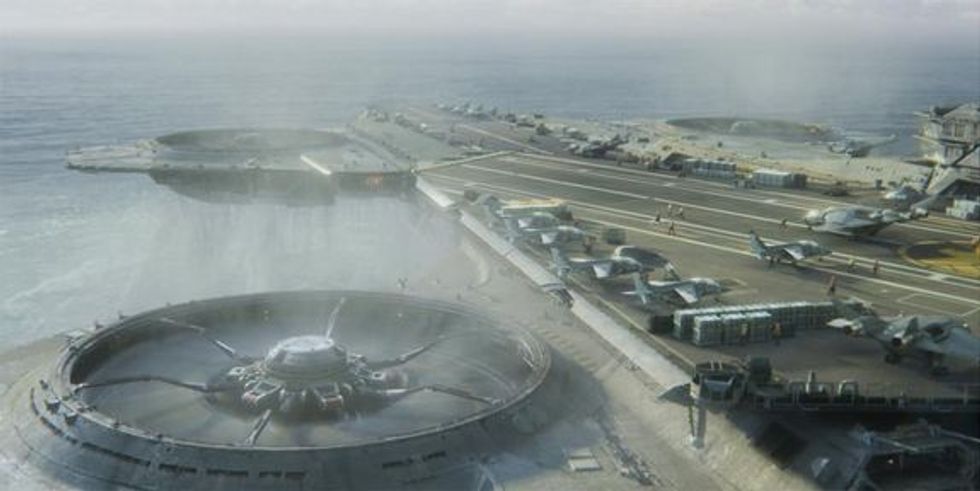
© 2026 Blaze Media LLC. All rights reserved.
“It just got to the point where it didn’t make any sense."
It might not be common knowledge, but apparently the United States Military likes to lend a hand to the making of Hollywood blockbusters. This has led to such memorable sequences as Iron Man fighting F-22 Raptors in "Iron Man 2," a sequence which apparently involved the genuine article.
But when it came to "The Avengers," apparently, the United States Military balked because they didn't find the film "realistic."
"Unrealistic?" you might be asking. "No! Was it the Norse Gods, the alien races, the men in weapons grade flying metal suits, or the fact that a Russian national world class spy was let anywhere near top secret military operations, that gave it away?"

Actually, it's none of the above. Rather, the problem that gave the military headaches was the existence of the international military organization S.H.I.E.L.D. - an organization that apparently, unlike other multinational governing bodies like the UN, has the authority to supercede United States sovereignty and utilize our military forces, including our aircraft, our soldiers, and even our flying aircraft carriers!
Wired has a good article explaining the military's hesitance over this idea:
Normally, the military loves to help Hollywood make mega-blockbusters. Iron Man got into a dogfight with F-22 Raptors in his first eponymous movie. The Navy provided the producers of the recent Act of Valor with unprecedented access to SEAL training missions and even let its secretive elite warriors act on camera. And the secretary of the Navy, Ray Mabus, even has a cameo in the forthcoming Battleship. (“I had a great time, although the director would probably recommend that I keep my day job,” Mabus told Politico.)But the ambiguity around what exactly S.H.I.E.L.D. is provides a vexing complication. If it’s an American governmental agency, what kind of constitutional authority does it exercise over the military? If it’s an international body, as the movie text suggests and Strub determined, are U.S. military personnel and equipment on loan to it through some kind of United Nations Security Council resolution? The questions may seem picayune, but they’re precisely the stuff that can cause an image-conscious military to yank its cooperation from a movie.
The comics have fudged the issue for decades. Marvel now describes it as an “extra-government” body, although many takes on the organization have clearly emphasized its international character. Yet U.S. presidents have fired S.H.I.E.L.D. directors (Fury, Tony Stark/Iron Man) and appointed others (Norman Osborn/The Green Goblin, incumbent Steve Rogers/Captain America) — although that might operate by an informal international understanding, much like the U.S. appoints the director of the World Bank.
Either way, the ambiguity prevented the Avengers from assembling beside the U.S. military. “It just got to the point where it didn’t make any sense,” Strub laments. And now comic nerds have another data point to bring up during continuity debates about what exactly S.H.I.E.L.D. is.
To be fair - it may be for the best that the organization has been left deliberately ambiguous. If S.H.I.E.L.D. were depicted as a multinational organization that could commandeer American military forces, that might give a few latter-day Wilsonians more than a few bad ideas.
H/T Yahoo Movies
Want to leave a tip?
We answer to you. Help keep our content free of advertisers and big tech censorship by leaving a tip today.
Want to join the conversation?
Already a subscriber?
more stories
Sign up for the Blaze newsletter
By signing up, you agree to our Privacy Policy and Terms of Use, and agree to receive content that may sometimes include advertisements. You may opt out at any time.
Related Content
© 2026 Blaze Media LLC. All rights reserved.
Get the stories that matter most delivered directly to your inbox.
By signing up, you agree to our Privacy Policy and Terms of Use, and agree to receive content that may sometimes include advertisements. You may opt out at any time.








